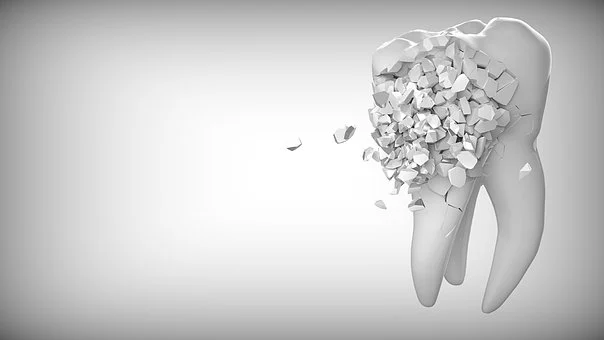Manu was only 34. He was a young, lively, fun-loving, well-built and energetic guy ready to dive into the challenges of life and grab every opportunity that comes his way! Manu was very particular about his healthy diet for his athletic muscles keep booming. He had no habit of smoking and was an occasional drinker.
On his 33rd birthday, he discovered a lesion on his tongue. Almost in less than two years, he was diagnosed with squamous cell carcinoma of the tongue (Stage 2). As a standard treatment protocol, Manu underwent surgery with the hope to get rid of the monstrous disease! The left half of his tongue and the lymph nodes from the left side of his neck were removed. He recovered and went back to his normal life. Manu was happy!
A year later post-surgery, Manu noticed a swelling on the left side of his neck. A lymph node was missed in the last surgery. The monster was back in his body! And this time, it took over silently through his entire body!
Time was around the beginning of the pandemic. Around his 34th birthday, Manu had to return to the hospital for more cancer treatment. He battled with 33 chemotherapy rounds along with radiation treatment. In the next few months, Manu deteriorated to the extent that he could barely breathe, eat, talk, walk or sleep. At the age of 34, he walked away on the path of the afterlife journey.
This is the story of Dr Manu Dua. He was a practising dentist in Calgary, Alberta. (Read his book Life Interrupted, Dr Dua’s Survival Guide, where he penned down his learnings from the battle of living and surviving during his last days on this Earth). In the initial stages, neither Dr Manu himself nor his oral surgeon believed that the small lesion could be cancer. His surgeon initiated treatment suspecting oral lichen planus ( a chronic inflammatory skin condition affecting the skin and mucosal surfaces). Dr Manu Dua used to say” It can’t be cancer. I’m too young”!
Could early detection of the cancer save Dr. Manu Dua’s life?

Dr Manu Dua (Picture credit: Dentistrytoday.com)
Two examples of existing “Knowledge Weapons” that can help us to add to newer perspectives to early detection of oral cancer to help patients.
Personalized cancer therapy: It is a treatment strategy which helps to predict which patients are more likely to respond to specific cancer therapies.
Principle behind the approach:
To study and analyse tumor biomarkers (such as DNA, RNA, protein and metabolomic profiles ) that are associated with patient genetic factors related with drug metabolism, drug response and drug toxicity.

Picture Source: MDAnderson. org
Application:
It will help to understand personalized tumor molecular profiles, tumor disease site and other patient characteristics.
Advantage:
Personalised therapy approach can be potentially used for determining optimum individualized therapy options, patient prognosis and tumor response to therapy.
2. Human Genome Sequence Completed
At the present time, the biggest weapon of knowledge that we have is the information about our DNA. This challenge was accomplished by successful completion of the Human Genome Project.
Principle behind the approach:
The Human Genome Project (HGP) was the international, collaborative research program whose goal was the complete mapping and understanding of all the genes of human beings using molecualr biology and biomedical technologies. All our genes together are known as our “genome.”
Application:
Researchers and scientists now are trying to determine how to read the contents of all these pages. Genome-based research are now enabling medical science to develop highly effective diagnostic tools, to better understand the health needs of people based on their individual genetic make-ups, and to design new and highly effective treatments for disease.
Advantage:
Having the essentially complete sequence of the human genome is similar to having all the pages of a manual needed to make the human body. This knowledge will help to discover the genetic basis for health and the pathology of human disease.
Ragister Now! Online Course In Oral cancer Genetics. Click the lInk below
With the increasing availability of genomics , routine analysis of advanced cancers is now also feasible. Treatment selection is frequently guided by the molecular characteristics of a patient’s tumor.
“Genomics is the study of all of a person’s genes (the genome), including interactions of those genes with each other and with the person’s environment”
What lessons should we learn from Dr Dua’s life story as oral healthcare professionals and scientists in the oral cancer space?
Is it ONLY ABOUT ………..
- encouraging more oral cancer screenings?
- more referrals of suspicious lesions for biopsies?
- more patient education about decreasing deleterious habits that add to risk factors?
….And doing more and more what is being dilligently done from years together by the entire fraternity oral healthcare fraternity in their best of capabilities at every level?
Or…..
Is it time that we as informed oral healthcare professionals and scientists, START looking into things a bit differently……..
- by adding a newer perspective to the existing efforts?
- learn and educate to look into genetic perspectives of the deadly oral cancer disease?
- create awareness of personalised cancer therapy among oral healthcare professionals?
- educate the young, aspiring dentists and guide them through the correct pathway to conglomerate oral cancer clinical research into clinical practice?
Enrol: Fellowship in Dental Genetics and Clinical Diagsnotics
6 months online hybrid format program accredited by:
American Council for Training and Development,New Jersey, USA
Click the link below:
- get involved in cross discipline population based oral cancer clinical trials?
- upgrade our knowledge to learn how genetic landscape of oral potentially malignant disorders could be a potential preventative strategy in oral cancer?
- focus to develop non-invasive chairside oral cancer screening and testing modalities?
What do you think?
Please share your thoughts and suggestions in “Comments”. Let’s learn from each other.
P.S.: If you like this blog, please share among your peers. Perhaps this might help someone somewhere.
For more information on our online course on Oral Cancer Genetics, visit: https://www.genedent.com/courses/oral-cancer-genetics/
Enrol and Educate Yourself To Upgrade. You can be the reason to ease somebody’s pain out there
#dentalgenetics





